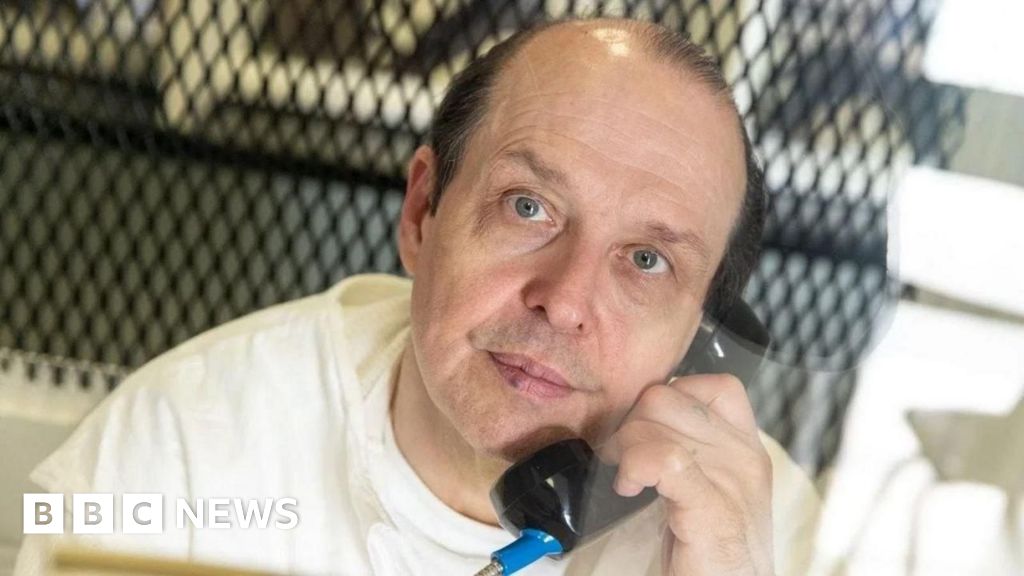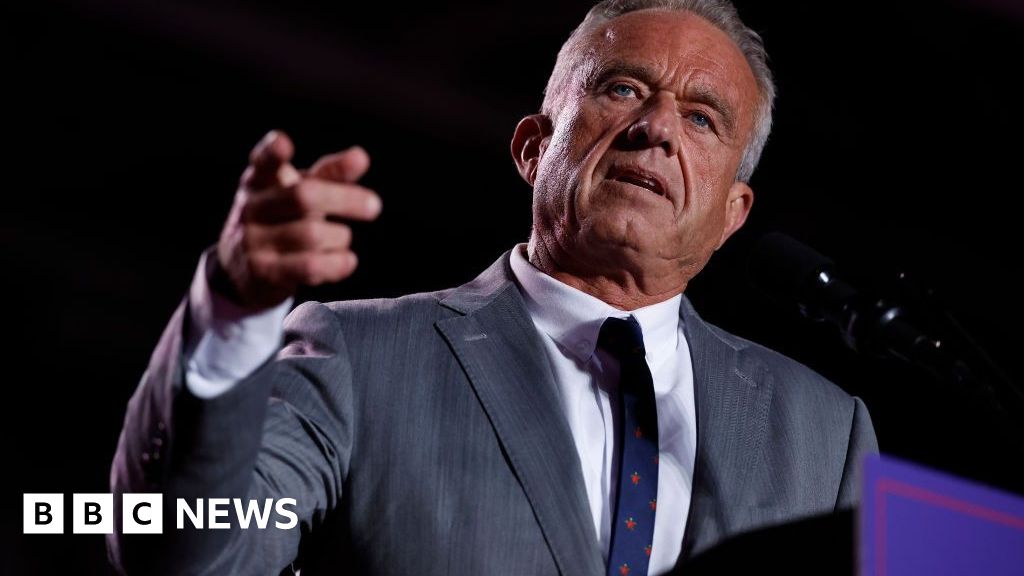ARTICLE AD BOX
Watch: Abortion pills explained in 60 seconds
By Holly Honderich
BBC News, Washington
The US Department of Justice has appealed against a Texas judge's decision to suspend approval of the abortion pill mifepristone.
The Biden administration lawyers said last week's "misguided" ruling risked women's health by blocking access to a pill long cleared as safe.
The Texas judge last week halted authorisation of the drug, but gave the government seven days to appeal.
Used in most US abortions, the pill has been allowed for over 20 years.
The battle looks likely to head for the Supreme Court, placing a question mark over access to the drug for millions of women.
The legal showdown could herald the biggest blow to abortion access since the country's top court last summer ruled there was no US right to terminate a pregnancy.
For now, the pill is still available.
'Barbaric' abortion law nearly killed these Texas women
On Monday, the justice department filed an emergency motion, seeking to block last Friday's ruling in Amarillo, Texas.
The Biden administration lawyers have asked for a decision by 13 April - one day before the lower court's decision is set to take effect.
The government said the Texas ruling was "especially unwarranted" because it would subvert the scientific judgement of the Food and Drug Administration (FDA), which authorises medication in the US.
The government's motion, if successful, would preserve mifepristone's approval until an appeal can be heard before the Fifth Circuit Court of Appeals.
Lawrence Gostin, a professor of global health law at Georgetown University, told the BBC: "This is such a poorly reasoned decision, I would hope that the Fifth Circuit would immediately stay the injunction and ultimately - on merits - strike down the Texas decision.
"But that's not a certainty. This is probably the most conservative appellate court in America, so it's possible they will validate the [Texas] decision."
"If the FDA can't approve this drug, I'm not sure what the FDA can approve," Professor Gostin added. "It's been on the market for over two decades, it's got an impeccable health and safety record."
If the justice department does not win on appeal its lawyers will take the case to the conservative-dominated Supreme Court within hours, legal experts predict.
Mifepristone is part of a two-drug regimen that induces abortions.
The pill effectively stops a pregnancy, while a second drug, misoprostol, empties the uterus.
The Alliance Defending Freedom, a conservative Christian legal advocacy group that represented plaintiffs in the Texas lawsuit, argued that the FDA in its four-year approval process had ignored the potential impacts of mifepristone on the developing bodies of adolescent girls.
Its senior counsel, Erin Hawley, said on Monday: "By illegally approving dangerous chemical abortion drugs, and imposing its mail-order abortion regime, the FDA put women in harm's way, and the agency should be held accountable for its reckless actions.
"Pregnancy is not an illness, and chemical abortion drugs don't provide a therapeutic benefit."
Mainstream medical organisations such as the American College of Obstetrics and Gynaecologists and the World Health Organization say mifepristone is safe and effective.
Friday's ruling by Judge Matthew Kacsmaryk in Texas declared the FDA's approval of mifepristone in 2000 to be invalid.
In a 67-page opinion, the Trump-appointee said the FDA had violated federal rules that allow for accelerated approval of certain drugs.
But just 18 minutes after the Texas decision, another federal judge, this one an Obama appointee in Washington state, ordered that access to mifepristone be preserved in 17 liberal states.
William Eskridge, a law professor at Yale University, told the BBC: "The injunction in the Washington case applies to 17 states, and the injunction in the Texas case applies to 50 states.
"That puts a lot of pressure on the Supreme Court to take review [of the case] sooner rather than later."
On Monday, more than 300 pharmaceutical executives, including Pfizer CEO Albert Bourla, called for the reversal of the Texas decision, saying it was a "decision to disregard science".
With reporting from Madeline Halpert

 1 year ago
28
1 year ago
28








 English (US)
English (US)